Mathato Aumane
Partners in Health, Lesotho
Abstract Title: Infection prevention and control as a granular for health care workers and patient safety: Redefining effective IPC in the context of MDR-TB
Biography:
An enthusiastic professional public health PhD candidate with background and experience in public health innovation with over 15 years of experience. Passionate about women's health and integrated family planning. I specialize in primary health care, health promotion, project management, policy development infection prevention and control (IPC), quality improvement, and health system strengthening. Proficient in Microsoft Word, excel, stata. My career is defined by significant continental roles and dedication to strengthening the health system, training, and Global Advocacy and bridging solutions to address the health inequity gap. Serving as the Health Care Quality Improvement Program Lead for Partners in Health Lesotho, I led efforts to bolster health systems across the ten districts of Lesotho reinvigorating the health reform. My tenure as a Health Care Quality Improvement Lead, further allowed me to develop Quality Assurance or quality standards and implement pivotal Quality strategies throughout the districts and at the health centers. As the Health Care Quality Improvement Program Lead, I orchestrated initiatives that significantly advanced coaching and mentorship across the region and multidisciplinary teams, demonstrating my leadership, management, and impact on public health policies and practices. Fluency in coaching and mentorship and proven leadership in multicultural settings and interdisciplinary teams enable me to lead diverse teams and promote collaborative learning effectively. These roles underscore my ability to navigate and influence health outcomes at both regional and continental levels and at the global level through the Global Fund Advocates Network. In the academic sphere, I have completed a Postgraduate Diploma in Public Health at the University of Pretoria, while my Honors degree from the University of Free State measured in Primary Health care, Occupational Health Care, Community Health, HIV/AID management and Management. I have fostered research that directly addresses global health challenges, underscoring my commitment to public health education, this is justified in the dissertation I undertook that focused on a male partner-inclusive health system. My academic journey, featuring a Ph.D. in Public Health, equips me with a multidisciplinary lens essential for tackling complex health crises because of my health economics, public management, epidemiology biostatistics, and research skills.
Research Interest:
Background: Measures to institutionalize best practices in Infection Prevention and Control (IPC) have assumed global importance due to concerns about the safety and quality of health services, including threats posed by disease outbreaks and antimicrobial resistance (AMR). The 2016 publication by the World Health Organization (WHO) on the Core Components of IPC and the implementation framework helped to delineate strategies for effective IPC and improvement efforts by Member States. Now more than ever, several member states have or are taking steps to institutionalize IPC programs; facilitate healthcare workers' education and training, and implement mechanisms to enhance health care-associated infections (HAIs) surveillance. Therefore Ministry of Health Lesotho through the support of Partners in Health is implementing of effective IPC at the MDR-TB program and rural health centres.
Method: In 2020 Ministry of Health through Quality Assurance and Quality Improvement developed the Infection prevention and Control National Guidelines with support from Partners in Health Lesotho. Following the completion, the health care workers received the training on IPC, then the IPC committees were established at the health centres with diverse teams of clinicians within the program. The committees receive periodic training on IPC and the core components of effective IPC and the assessment tool. The team conducted the baseline IPC assessment and subsequently the IPC plans to address the gaps identified. The processes, protocols and standard operating procedures were developed in order to standardize health care delivery processes.
Implication: The baseline IPC assessment indicated that the hospital is currently at the basic state (390.25), however following the implementation of the plans the improvements signal that the effective IPC is at the intermediate state (510.25).
Conclusion: Implementing Effective IPC requires concerted efforts and bottom-up and top-down approach, where health care workers embrace the concept of point of care. Additionally, this approach requires health care workers to be intentional in breaking the chain of transmission of microorganisms.

